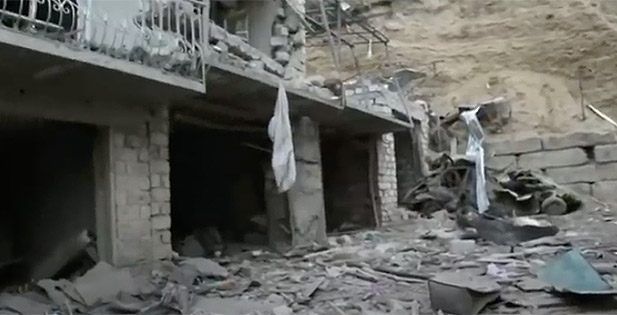In the past week the ‘frozen conflict’ between Armenia and Azerbaijan has escalated into heavy fighting. On Monday over 220 people were already reportedly killed, among whom reportedly also civilians. This death toll will only be increasing as long as the fighting continues.
 PAX is horrified and sad over this development and expresses solidarity with the civilians who live in fear and mourn those they have lost. Having worked with activists living in or coming from Armenia, Azerbaijan and disputed Nagorno-Karabakh and surrounding territories for years, PAX is well aware of the tragedy that the former escalations of conflict have brought to the people, and the growing divide since then. We call upon all parties to stop fighting and seek real political solutions instead.
PAX is horrified and sad over this development and expresses solidarity with the civilians who live in fear and mourn those they have lost. Having worked with activists living in or coming from Armenia, Azerbaijan and disputed Nagorno-Karabakh and surrounding territories for years, PAX is well aware of the tragedy that the former escalations of conflict have brought to the people, and the growing divide since then. We call upon all parties to stop fighting and seek real political solutions instead.
Guido de Graaf Bierbrauwer from PAX: “We are very concerned over the recent developments; we fear for the lives of the people we worked with and all those living around them, and for the deepening divide and hate this will bring between people. It is a blow in the face for those people that fought hard for more mutual understanding and a peaceful resolution to the conflict”.
The use of heavy explosive weapons in Ganja, Stepanakert and other populated areas has immense consequences for civilians. As the International Committee of the Red Cross (ICRC) reports, “hundreds of homes and key infrastructures like hospitals and schools have been destroyed or damaged by heavy artillery fire and by airborne attacks including missiles. Other infrastructures such as roads, electricity, gas, and communication networks have also been damaged.” PAX is particularly concerned about the indiscriminate impact on civilians and destruction of critical infrastructure caused by explosive weapons in populated areas.
This pattern of harm must be stopped right now.
PAX, together with partners in the International Network on Explosive Weapons (INEW) calls on all parties to the conflict to stop the use of explosive weapons in towns and cities. There are also reports of attacks with cluster munitions in and around Nagorno- Karabakh. These weapons are banned by over 110 states for the grave humanitarian harm they cause. PAX, together with partners in the Cluster Munition Coalition, condemns any use of cluster munitions and calls upon all parties to the conflict to refrain from the use of cluster munitions and for Armenia and Azerbaijan to join the Convention on Cluster Munitions.
The extensive use of armed drones reflects a trend in which more and more states are using these weapons in combat due to their low costs and absence of risk to own military personnel. Current wide-scale deployment of Turkish armed drones, likely operated by Turkish pilots, and Israeli-origin ‘suicide drones’ underscore that regional security can be seriously hampered. Drone technology facilitates a kind of lethal use of force that would have been significantly less likely to be used with crewed aircrafts. The trend of deploying armed drones in such regional disputes should raise concern over how armed drones can fundamentally change power dynamics and lowers the threshold of the use of force. PAX, as coordinator of the European Forum on Armed Drones (EFAD), recognizes that remote lethal force with armed drones generates over-confidence in the technology, often with a devastating effect on civilians and regional security. We therefore call for greater transparency and controls on the use of armed drones.
—
Photo: A historical building in Ganja after being hit by a rocket by Sefer azeri – Own work, CC BY-SA 4.0, https://commons.wikimedia.org/w/index.php?curid=94727896




